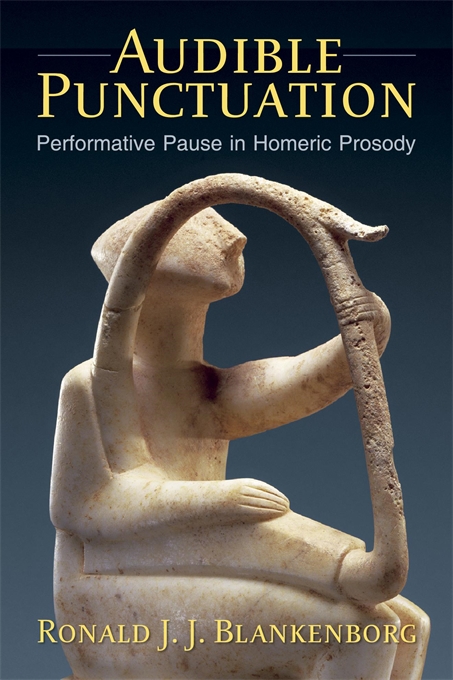Audible Punctuation: Performative Pause in Homeric Prosody
Audible Punctuation focuses on the pause in Homer’s Iliad and Odyssey, both as a compositional feature and as a performative aspect of delivery, arguing for the possibilities and limits of expressing phrases in performance. Ronald Blankenborg’s analysis of metrical, rhythmical, syntactical, and phonological phrasing shows that the text of the Homeric epic allows for different options for performative pause—a phonetic phenomenon evidenced by phonology.
From…
Audible Punctuation focuses on the pause in Homer’s Iliad and Odyssey, both as a compositional feature and as a performative aspect of delivery, arguing for the possibilities and limits of expressing phrases in performance. Ronald Blankenborg’s analysis of metrical, rhythmical, syntactical, and phonological phrasing shows that the text of the Homeric epic allows for different options for performative pause—a phonetic phenomenon evidenced by phonology.
From the ubiquitous compositional pauses in sense and metrical surface structure, Audible Punctuation selects the pauses that, under specific phonetic circumstances, double as rests of some duration during a performance. In this way, Blankenborg identifies those places in the verses that a performer of Homeric poetry was most likely to have used as opportunities to pause. The distribution of pauses over Homer’s hexameters proves to be irregular and unpredictable because phonological phrases and grammatical clauses differ considerably in the way they terminate. The mismatch of prosodic and other levels of phrasing draws attention to the need to reassess stylistic issues, notably enjambment.
Available for purchase via Harvard University Press.
Blankenborg, Ronald J. J. 2022. Audible Punctuation: Performative Pause in Homeric Prosody. Hellenic Studies Series 87. Washington, DC: Center for Hellenic Studies. http://nrs.harvard.edu/urn-3:hul.ebook:BlankenborgR.Audible_Punctuation.2022.
This work is licensed under a Creative Commons 3.0 License.

